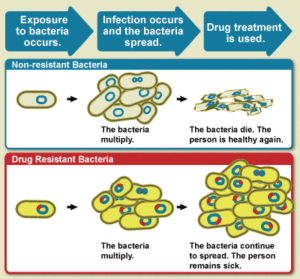Biomedical research is at risk of losing the antibiotics vs. pathogens arms race. Pneumonia, tuberculosis, gonorrhea, and salmonellosis are becoming harder and sometimes impossible to treat due to the fast emergence and global spread of new antibiotic resistance. Without urgent action, we are heading for a post-antibiotic era, in which common infections and minor injuries can once again kill. At current rates of antibiotics discovery and development, we will lose to antibiotic-resistant strains, and by 2050, antibiotic-resistant bacteria will kill more patients per year than all cancers combined. There is a desperate need to develop strategies beyond antibiotics to kill and prevent the rise of resistant bacterial pathogens.
Prof. Nallathamby and Dr.Hopf have developed an antibiotic independent, structure-based antibacterial, and nanomaterial-based system that is effective for topological applications (e.g., skin infections). We have been funded by CTSI to use our new class of antimicrobial nanoparticles as a foundation for developing a fluorescence-based infection reporter system correlated with the activity of infectious bacteria at the wound site to detect potential infectious agents at wound locations and closely monitor wound healing. We further want to develop a viable system to effectively monitor and disrupt intracellular bacterial populations responsible for recurrent and persistent infections (chronic wounds). Structure-based antimicrobials have a high potential to be the fundamental paradigm shift needed to develop a viable complement or even an alternative to traditional antibiotics. This work is conducted in collaboration with the Shaun Lee lab at Notre Dame.



Recent Comments